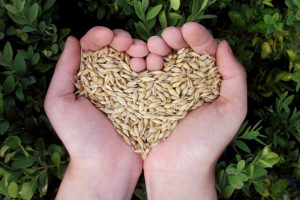Weight Management/Weight Loss
Poor Food Choices at Work Can Impact Overall Diet
Since many Americans spend half their waking hours at a job, it makes sense that the food they decide to purchase at work can have a big impact on their overall diet.
Snacking Calories Add Up
With the holiday season comes a bounty of tasty nibbles! But a study in The American Journal of Clinical Nutrition tells a cautionary tale about eating festive cookies and snacking from those leftover party platters.
Men’s Health Research Review
Men: Are you exercising and eating healthfully but not losing the weight you want? The good news is that there are more benefits to these two habits than just weight loss.
Megan Senger, professional fitness writer/editor and fitness instructor based in North Carolina, has summarized a few studies that center on men’s wellness, with comments on what the findings may mean for you.
Maternal Weight and Pregnancy Complications
Encourage your pregnant clients (if cleared by their doctors) to keep working out with you. A new study shows that maintaining a healthy weight before and during pregnancy is a key factor in avoiding pregnancy complications.
Social Media Influencers Give Inaccurate Health Advice
Have you been frustrated by bad health and fitness advice doled out by social media influencers? You’re not alone, and if you sense that much of the popular online health information is wrong, you’re right! A recent study of key U.K. social media influencers’ weight management blogs—presented at the European Congress on Obesity in Glasgow, Scotland, in April 2019—showed that most influencers were not reliable weight management resources.
Processed Food Linked to Weight Gain
Over the past several decades, fast-food and processed/packaged foods made with cheap ingredients like white flour and salt have come to dominate the American diet. While an established link between eating too much junk food and obesity has been made, there is still a need for more research to suss out the reasons why.
Delicious Danger? A Research Update on Artificial Sweeteners
In human evolution, the preference for sweet taste was beneficial, since it helped to direct newborns toward eating nutritious food. Recent advances in medicine and nutritional sciences suggest that reducing intake of products high in sugar and salt could improve public health. Nevertheless, many people adore sweets and, therefore, artificial sweeteners (AS)—food supplements with chemical structures different from sugar—made their way onto the market.
Myths About Meal Timing and Frequency
Which is better: eating five or more small meals or fasting for 16 hours a day? There are a lot of opinions about the optimal timing of meals. Whether your clients are trying to lose weight or gain muscle, chances are they have heard of meal frequency and meal timing, which are common terms used interchangeably to talk about dietary eating patterns. However, all the talk has created a mythology around the “right” way to eat. It’s time to separate myth from reality by looking beyond opinions and focusing on the science.
2019 IDEA® World Convention: Igniting Passion With Purpose!
Purpose, passion and people! The fitness industry is all about forging relationships that lift others up. Fitness professionals have energy to spare, and they are dedicated to mentoring new generations of pros, networking with peers, and motivating clients and participants every day.
The Weight Debate: Obesity and Health Risks
Think of it as the point-counterpoint discussion on obesity: Is the healthcare profession overemphasizing the negative consequences of extra weight? What are the risks? Is the focus on obesity helping or hurting our clients?
Embracing Health at Every Size
People who have worked to lose weight may have found that achieving short-term weight loss is relatively easy. But weight loss success all too often ends in weight regain. Soon, dieters embark on a new diet, launching a round of weight cycling that wreaks havoc on the body and causes many problems routinely blamed on obesity.
Low-Carb May Not Be Heart Friendly
While Instagram feeds are awash with people broadcasting the weight loss benefits of living off butter and steak, there has been little data addressing the impacts of carb-stingy diets on various health measures down the line. Now we have some indication that there is cause for concern.
Smartphones Could Aid Weight Loss
Most often we’re told to spend less time on our smartphones, but researchers from Duke University have given us evidence that a food-tracking mobile app can be an effective tool for those who want to shed pounds without committing to a more time-consuming intensive diet program.
There Is Power in Protein for Older Adults
Many older adults could benefit from dropping a few pounds of body fat. With weight loss, though, there are often reductions in bone strength and lean body mass, thereby raising the risk of mobility issues and injury from falls. New research shows that a diet tweak might help older people retain their muscle while simultaneously scaling down their body fat.
Correcting Misconceptions About Fat
For years, fat was demonized as dietary “Public Enemy Number One.” Despite the essential roles it plays in the body, including temperature regulation, hormone production and protection of organs, we were told it was also responsible for weight gain and other health woes. As a result, people stocked their kitchens with low-fat items.
Cardio Training and Weight Loss
A systematic review of 77 studies suggests that while both interval training and continuous moderate-intensity exercise are effective for fat loss, interval training may produce results in a more time-efficient manner. Researchers from Brazil and England conducted the review to identify what type of exercise—continuous moderate-intensity (MOD), high-intensity interval training (HIIT) or sprint interval training (SIT)—is best for weight loss.
Health Coaching: Starting Your Business
Are you excited about helping people to transform their lives through health coaching? You’ve educated yourself, earned certifications, gained practical experience and are ready to start your business. What’s next?
Yo-Yo Dieting Tied to Heart Problems
Obesity and consistently elevated blood pressure, cholesterol and blood sugar levels have long been linked to a higher risk of heart disease. But what happens when these metabolic risk factors fluctuate over time, as can happen when people flip-flop between diets? The answer may hail from a study in the journal Circulation involving a massive 6.7 million people.
Fewer Carbs May Increase Your Metabolic Rate
Anyone who’s achieved a weight loss goal, then watched his or her waistline expand over the following months, can attest to the incredible frustration of seeing hard-earned results fade away. The reasons for weight regain are many, but a big contributing factor is how the body tends to recognize missing pounds as a need to slow metabolism and burn fewer calories, making it harder for people to maintain weight loss.
Carbohydrate Controversy: “Good” Sugars vs. “Bad” Sugars?
Physiologists regularly extol the importance of carbohydrates as a vital fuel that drives exercise and sport performance. Before the Industrial Revolution, carbohydrates were the major source of nutrients and energy for people throughout the world. Carbohydrates that come primarily from plants in the form of vegetables, fruits and grains are a direct link to the earth’s food chain. However, evidence is mounting that carbs from added sugars in cookies and soft drinks present several health risks.



















